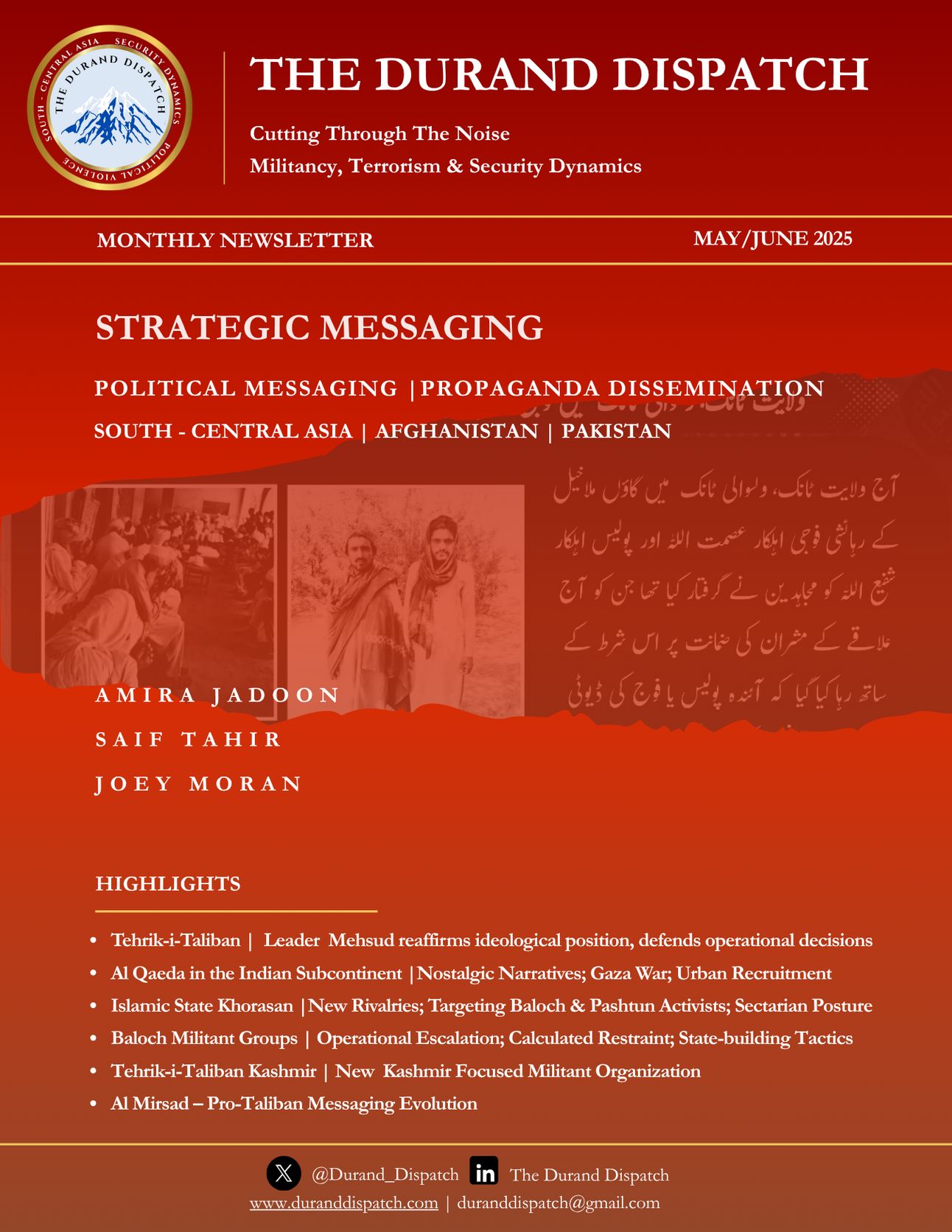


Editor's Note
Welcome to the monthly Durand Dispatch: Strategic Messaging newsletter, offering insights on how various non-state actors across the Afghanistan-Pakistan region are framing, amplifying, and weaponizing their narratives. Our analysis is contextualized within the broader security and political developments tracked in our sister newsletter, Durand Dispatch: Perspectives, giving readers a comprehensive understanding of how messaging strategies intersect with evolving regional dynamics.
The May/June issue of Strategic Messaging maps how militant groups across ideological spectrums—including Tehrik-i-Taliban Pakistan (TTP), the Islamic State Khorasan Province (ISKP), Al Qaeda in the Indian Subcontinent (AQIS), Baloch Militant Organizations and emerging actors like the Tehrik-i-Taliban Kashmir (TTK)—are adapting their messaging to exploit ongoing crises, and societal grievances. By reframing adversaries –both government actors and rival factions – offering detailed commentary on current sociopolitical issues, and employing state-building tactics, militant groups communicate with multiple audiences simultaneously, in pursuit of political relevance, resources and public support. The analysis also highlights the role of pro-Taliban outlets such as Al Mirsad in advancing counter-narratives, the growing use of artificial intelligence by militant groups, and the symbolic revival of Kashmir-focused narratives amid escalating India-Pakistan tensions. Further, as information warfare has intensified, so too have inter-group rivalries –especially between more locally oriented militant groups and transnational elements.
These competing narratives constitute an ever evolving form of strategic messaging, with implications for both civilian populations and government stakeholders. For civilians, understanding these narratives is crucial for recognizing exaggerated claims and disinformation campaigns and making informed decisions about personal and community security. For policymakers and security professionals, these insights can inform counter-messaging strategies, threat assessment protocols, and resource allocation decisions that directly impact national and regional stability.
Subscribe to our premium Strategic Messaging content to read the full briefing:
---------------------------------------------------------------------
UpgradeGain access to:
- In-depth Monthly Analyses - Detailed breakdowns of militant propaganda and narrative trends across South and Central Asia.
- Exclusive Visual Summaries - Infographics and dashboards that translate complex messaging into clear, actionable insights.
- Implications & Overlaps - Analysis that connects dots across groups, platforms, and regions—showing how narratives converge or diverge.
- Archival Access - A searchable library of past issues and visual summaries, available only to subscribers.




